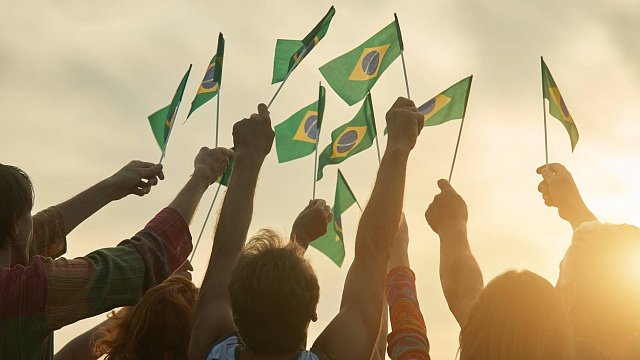07.09.24
10:30
Brazil celebrates 202 years of Independence
While celebrations take place across the country, Brazil is gaining ground on the world stage through BRICS
Brazil, the largest country in South America, celebrates its Independence Day every year on 7 September. This historic date marks the moment when the country declared its independence from the Portuguese colonial empire in 1822.
The road to freedom, the commemorations of this special day and Brazil’s role on the global stage – especially through co-operation with emerging powers in the BRICS group – are fundamental to the country’s national identity and geopolitical influence.
Christian Bultemann, a political analyst specialising in the history of the BRICS countries, in a commentary to TV BRICS pointed out that while Brazil’s Independence Day is celebrated with cultural events across the country, Brazil’s participation in BRICS has been key to its international rise.
Independence Day celebrations
Fatherland Day, as it is also called, is a bank holiday in Brazil, during which the country celebrates its freedom and cultural identity.
The analyst noted that many celebrations take place across the country: schools hold parades through the streets, while students sing the anthems of independence and Brazil. In Brasilia especially, a large military parade is traditionally held, bringing together the armed forces, political leaders and countless citizens to honour Brazil’s history and achievements. This parade is a symbolic demonstration of national unity and sovereignty. In addition to the official ceremonies, cities across the country hold a variety of cultural events, concerts, folk dances and fireworks, reflecting the diversity and pride of the Brazilian people.
Brazil’s rise through the BRICS
According to Bultemann, in recent decades Brazil has established itself not only as a key power in Latin America, but also on the global stage. A crucial step in this direction was its participation in the BRICS group, which today comprises Brazil, Russia, India, China, South Africa, Egypt, Saudi Arabia, Egypt, Iran, Ethiopia and the United Arab Emirates.
The association brings together some of the world’s largest emerging economies, collectively representing around 40 per cent of the global population and a significant share of the world’s economic output.
“Brazil’s participation in BRICS has allowed the country to promote its interests in global issues such as trade, environmental protection and social development. Within the association, Brazil benefits from investments and technological exchanges with countries such as China and India, while at the same time playing a key role in the global food supply, being one of the largest agricultural producers in the world”
Christian Bultemann Political analyst specialising in the history of the BRICS countries
According to the expert, the BRICS partnership offers Brazil the opportunity to explore alternative financial avenues and reduce its dependence on Western financial institutions such as the IMF. The creation of the New Development Bank (NDB), founded by BRICS member countries in 2014, is an example of how Brazil and its partners are working to establish a counterweight to traditional international institutions.
Photo:
iStock
Back

